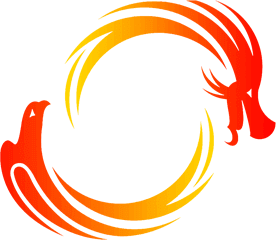

Kangwon 1999
Skating
Skating
Skating is an Extreme sport that concist of various disciplines such as Figure Skating, Speed Skating, Short track speed Skating etc.
This deferent aspects of the sport has there own individual rules that gide them Skating is a high speed event that requier's the use of special equipment to glid across smooth surface.
List of disciplines
- Figure Skating
- Short Track Speed Skating
- Speed Skating
Like many winter sports, figure skating's roots grew from necessity. As a mode of transportation for warfare and hunting in Northern Europe, skating was a swift way to cross frozen lakes, ponds, rivers and streams.
Warriors and hunters crafted makeshift skates of reindeer antlers or elk bones, and later iron and steel. By the 16th century, skaters were transporting goods across frozen waterways.
In 1892, the International Skating Union (ISU) was founded. Six years later, the first ISU-sanctioned event was held, and organisers hoped it might soon become an official Olympic sport.
Because competitions could be held indoors, figure skating was added to the Olympic programme for the 1908 Summer Games. Figure skating became an official Olympic Winter Games sport at the 1924 Winter Games in Chamonix.
List of events
-
men
-
SINGLES
-
SHORT PROGRAM
-
FREE SKATING
-
-
women
-
SINGLES
-
SHORT PROGRAM
-
FREE SKATING
-
-
mixed
-
ICE DANCING
-
PAIRS
-
PAIRS (SHORT PROGRAM)
-
ICE DANCE (SHORT DANCE)
-
PAIRS (FREE SKATING)
-
ICE DANCE (FREE DANCE)
-
Short track speed skating races began to occur in Europe shortly after speed skating became an established international sport.
The International Skating Union was founded in 1892, three years after the first long-track World Championships.
Prior to the arrival of short track at the Olympics, it was common for skaters to compete in short and long-track events. Short track ovals were covered and offered a place for skaters to train all year.
Many long-track racers would practice sprinting and turning techniques around the small oval. Some even competed in short track competitions.
With the development of new indoor long-track facilities, the cross-sport training is not as popular anymore. Also, now that short track has become established as an Olympic sport, racers have been forced to specialise to succeed.
Short track speed skating was first included in the official programme at the XVI Olympic Winter Games in Albertville in 1992.
List of events
-
men
-
500M
-
1500M
-
3000M
-
5000M RELAY
-
1000M
-
HEATS 5000M RELAY
-
SEMI-FINAL 5000M RELAY
-
FINAL 5000M RELAY
-
-
women
-
500M
-
1000M
-
1500M
-
3000M RELAY
-
SEMI-FINAL 3000M RELAY
-
FINAL 3000M RELAY
-
It is believed that skates were developed about 3000 years ago in Scandinavia. In the Netherlands, skating served as a way to travel over the canals in winter and the Dutch are still among the world's most avid skaters.
Although the Netherlands is the birthplace of speed skating, the first known skating competition is thought to have been held in 1676.
Competitions sprung up across the northern part of Europe shortly after, but the first official speed skating events were not held until 1863 in Oslo, Norway.
In 1889, the Netherlands hosted the first World Championships, bringing together the Dutch, Russians, Americans and English. Speed Skating has been a part of the Olympic programme since the 1st Olympic Winter Games in Chamonix Mont Blanc in 1924.
Originally only men participated, but women's events were included in the 1960 Squaw Valley Games.
List of events
-
men
-
10000M
-
500M
-
1500M
-
5000M
-
3200M TEAM PURSUIT
-
70 LAPS MASS START
-
1000M
-
8 LAPS TEAM PURSUIT
-
16 LAPS MASS START
-
-
women
-
500M
-
1500M
-
3000M
-
5000M
-
2800M TEAM PURSUIT
-
50 LAPS MASS START
-
1000M
-
6 LAPS TEAM PURSUIT
-
16 LAPS MASS START
-
Related links
Sports Committee
The Sports Committee consist of one Chairman and a minimum of five members. The Chairman, nominated by his NOC, will be elected by the GA, while the Members preferably representing the 5 zones of t...
Sports and Environment Committee
The Sports and Environment Committee consist of One Chairman and Five Members. The Chairman, nominated by his NOC, will be elected by the GA, while the Members preferably representing the 5 zones o...
Sports for All Committee
The Sports for All Committee shall consist of One Chairman and Five Members. The Chairman, nominated by his NOC, will be elected by the GA, while the Members preferably representing the 5 zones of ...
Sports Federations
-

Asian Federation
Asian Skating Union
-

International Federation
International Skating Union

